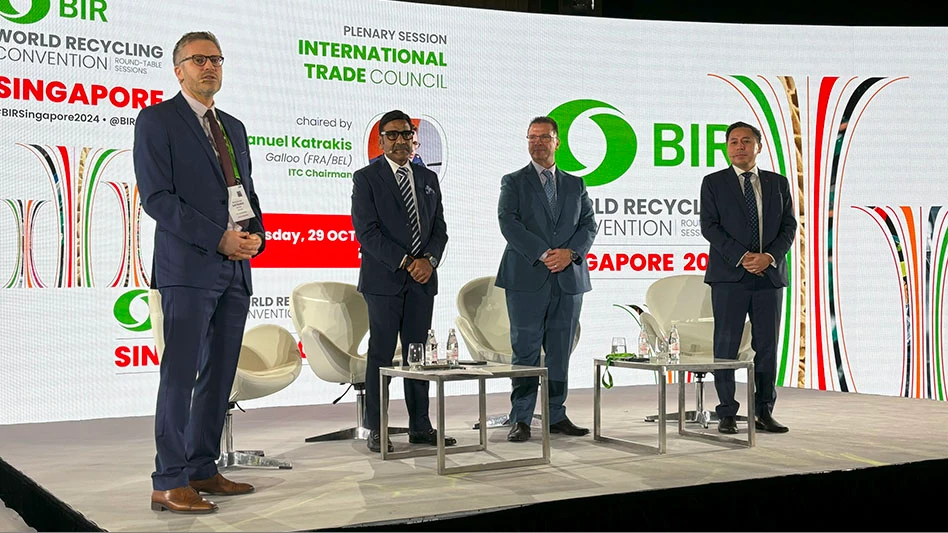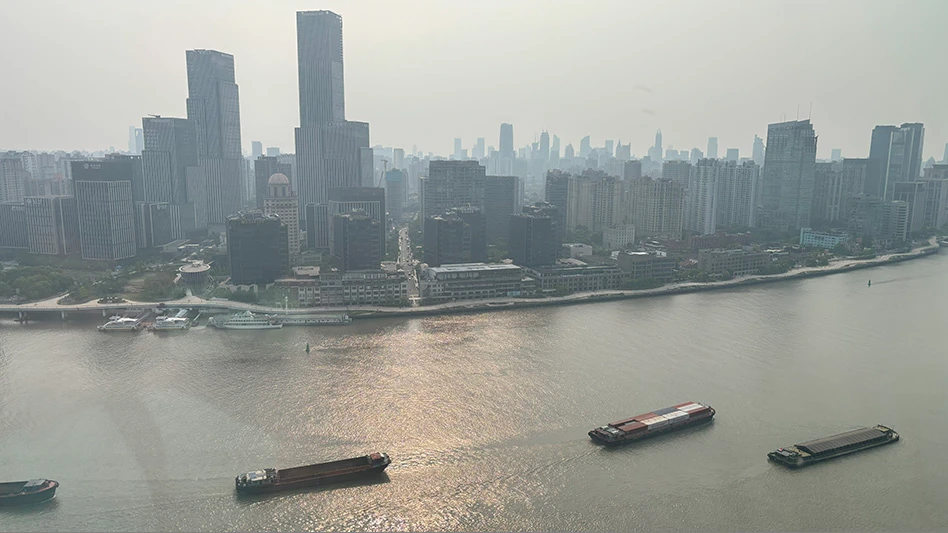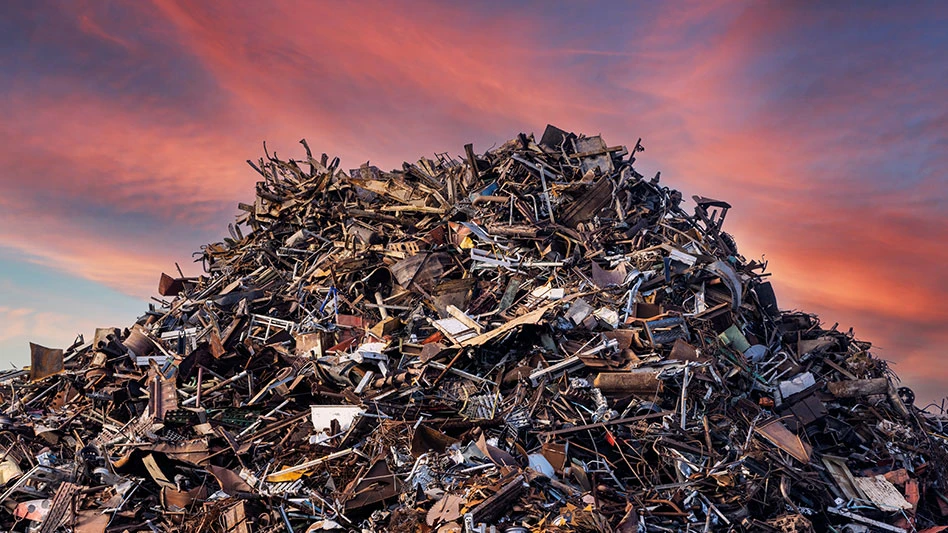
Recycling Today archives
Members of the Brussels-based Bureau of International Recycling (BIR) will need to exert a considerable amount of effort to meet deadlines to comply with the European Union’s revised Waste Shipments Regulation (WSR), according to speakers at a recent BIR meeting.
At the meeting of the BIR’s International Trade Council (ITC), held in Singapore in late October, procedures and potential consequences tied to WSR export restrictions were a primary topic of discussion.
Although recyclers and trade groups have spent decades attempting to convince regulators that highly marketable and recyclable metals, paper and plastics are not “waste,” the EU has applied the term to refer to secondary commodities shipped from that region to nations with developing economies that are not members of the Paris-based Organization of Economic Cooperation and Development (OECD).
Per the WSR revisions, a government representative from any non-OECD nation must contact the European Commission (EC) by Feb. 21, 2025, to identify which secondary commodities it grants permission to import.
Without that declaration, doors to EU scrap materials in Africa and much of Asia begin closing in the following two years. Even with a declaration in hand, traders, processors and manufacturers in non-OECD countries must undergo a third-party auditing process to demonstrate compliance with EU environmental and safety standards.
Sanjay Mehta of Mumbai-based MTC Group, representing the Material Recycling Association of India (MRAI), said that organization is rallying its membership to help ensure Indian traders and manufacturers can continue to tap into Europe’s recycled resources.
Mehta said an EU policy that makes it more difficult for manufacturers in India to import circular materials runs contrary to more than one Indian domestic policy, both on the environmental and industrial policy fronts.
For several years, MRAI has lobbied to remove import tariffs on imported ferrous and nonferrous scrap brought in from Europe and elsewhere, and currently is urging recycled content mandates for domestically produced aluminum, copper and zinc.
If the Indian and EU governments and companies on both sides of the trading relationship do not overcome potential WSR hurdles, Mehta said it could “choke” the raw materials needs of India’s entire basic materials sector and downstream manufacturers beyond that.
Some economic activity could “come to a grinding halt,” he predicted, foreseeing unemployment, bankruptcies and global secondary commodity market equilibrium that would become “distorted.”
“We are in a critical time frame,” said Emmanuel Katrakis of Belgium-based Galloo. Katrakis, who also serves as ITC chair, said the situation European recyclers and traders find themselves in reminds him of the adage, “If you’re not at the table, you are on the menu.”
Like Mehta, he urged recyclers, traders and recycled-content producers to ensure the proper government and private sector procedures are followed and invited them to contact BIR staff if they have questions.
Brian Henesey of Colorado-based Rocky Mountain Recycling offered a look at how United States trade policies may change after the presidential election.
Henesey said Donald Trump has promised to again levy tariffs on imported goods, potentially including a universal tariff of from 10 to 20 percent and potentially a 60 percent tariff targeting China.
“Should he win, I believe we will see disruption,” said Henesey, who also serves as board chair of the Washington-based Recycled Materials Association (ReMA).
Politics aside, Henesey urged the global recycling industry to continue to preach that recycled material is not waste and that they are “essential to circularity.” He also promoted ReMA specifications as a frame of reference for recyclers and traders globally.
Guest speaker Joe Vu, who works from Singapore for the London Metal Exchange (LME), said his company is in the midst of a process to enhance liquidity.
“We will keep rules that are important to the physical market in place,” he said.
Vu said an LME contract pegged to Turkish imports of ferrous scrap has reached 8 million metric tons in annual volume and could grow to 12 million tons, he predicted.
On the nonferrous side, Vu said the LME is exploring creating a one-ton lot size contract for copper trading and hedging, which could appeal to recyclers. However, he could not offer a time frame on when such a contract might be introduced.
The 2024 BIR World Recycling Convention Round-Table Sessions was held at the Raffles City Convention Center/Fairmont Hotel in Singapore on Oct. 27-29.
Get curated news on YOUR industry.
Enter your email to receive our newsletters.Latest from Recycling Today
- Republic Services, Blue Polymers open Indianapolis recycling complex
- Altilium produces EV battery cells using recycled materials
- Brightmark enters subsidiaries of Indiana recycling facility into Chapter 11
- Freepoint Eco-Systems receives $50M loan for plastics recycling facility
- PET thermoform recycling the focus of new NAPCOR white paper
- Steel Dynamics cites favorable conditions in Q1
- Hydro starts up construction in Spain
- Green Cubes unveils forklift battery line






